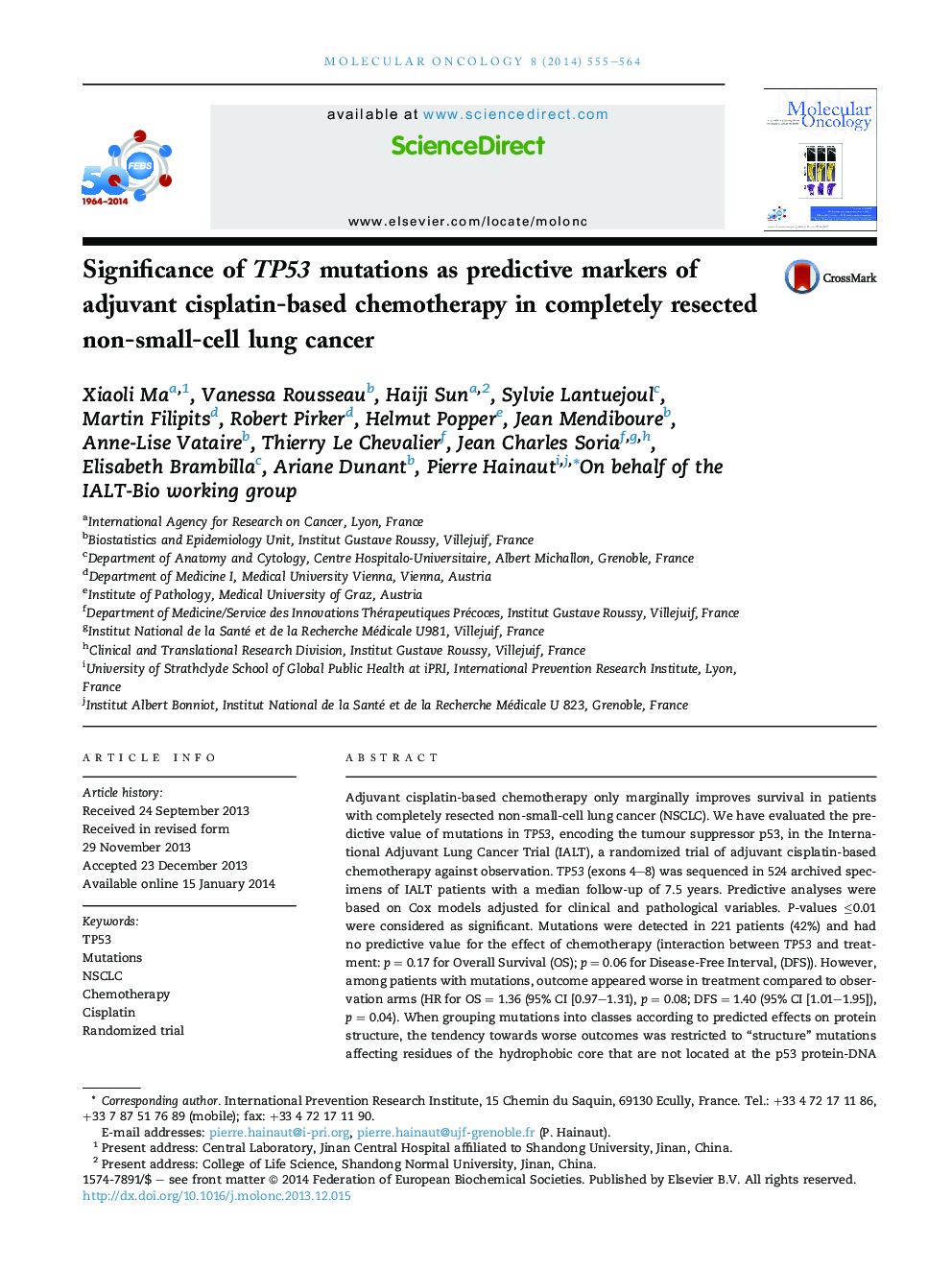| Article ID | Journal | Published Year | Pages | File Type |
|---|---|---|---|---|
| 10914677 | Molecular Oncology | 2014 | 10 Pages |
Abstract
Adjuvant cisplatin-based chemotherapy only marginally improves survival in patients with completely resected non-small-cell lung cancer (NSCLC). We have evaluated the predictive value of mutations in TP53, encoding the tumour suppressor p53, in the International Adjuvant Lung Cancer Trial (IALT), a randomized trial of adjuvant cisplatin-based chemotherapy against observation. TP53 (exons 4-8) was sequenced in 524 archived specimens of IALT patients with a median follow-up of 7.5 years. Predictive analyses were based on Cox models adjusted for clinical and pathological variables. P-values â¤0.01 were considered as significant. Mutations were detected in 221 patients (42%) and had no predictive value for the effect of chemotherapy (interaction between TP53 and treatment: p = 0.17 for Overall Survival (OS); p = 0.06 for Disease-Free Interval, (DFS)). However, among patients with mutations, outcome appeared worse in treatment compared to observation arms (HR for OS = 1.36 (95% CI [0.97-1.31), p = 0.08; DFS = 1.40 (95% CI [1.01-1.95]), p = 0.04). When grouping mutations into classes according to predicted effects on protein structure, the tendency towards worse outcomes was restricted to “structure” mutations affecting residues of the hydrophobic core that are not located at the p53 protein-DNA interface (HR for death in this class vs wild-type T53 = 1.66; 95% CI [1.10-2.52], p = 0.02). Overall, TP53 mutations are not significant predictors of outcome in this trial of cisplatin-based chemotherapy, although a specific class of structural mutations may be associated with a tendency towards worse outcomes upon treatment.
Related Topics
Life Sciences
Biochemistry, Genetics and Molecular Biology
Cancer Research
Authors
Xiaoli Ma, Vanessa Rousseau, Haiji Sun, Sylvie Lantuejoul, Martin Filipits, Robert Pirker, Helmut Popper, Jean Mendiboure, Anne-Lise Vataire, Thierry Le Chevalier, Jean Charles Soria, Elisabeth Brambilla, Ariane Dunant, Pierre Hainaut,
